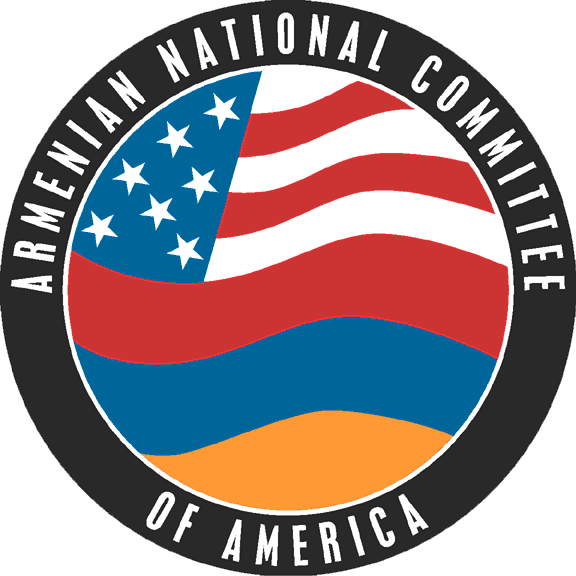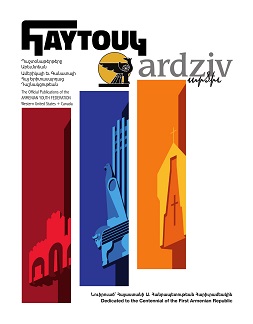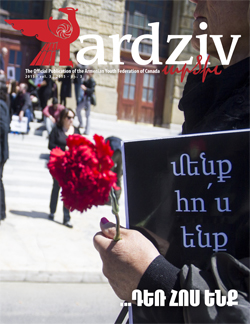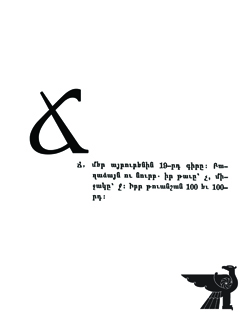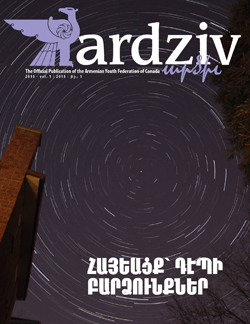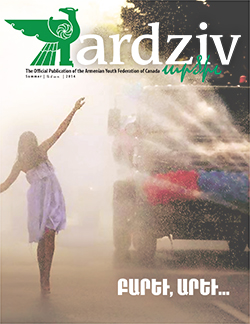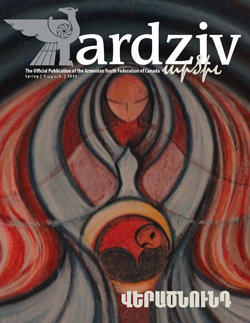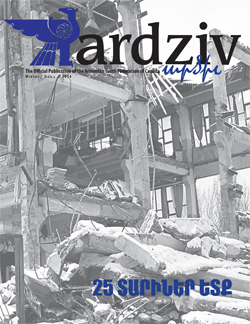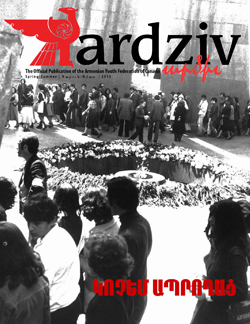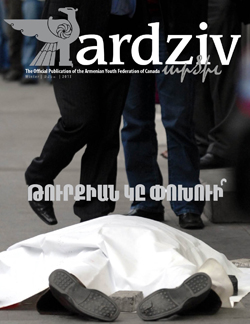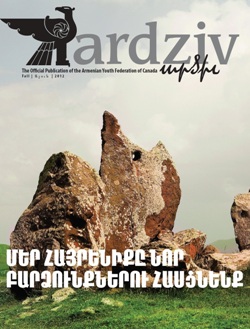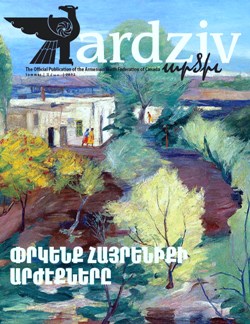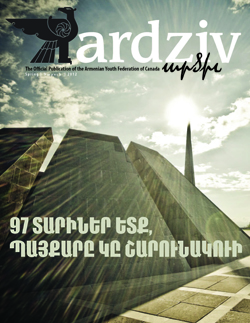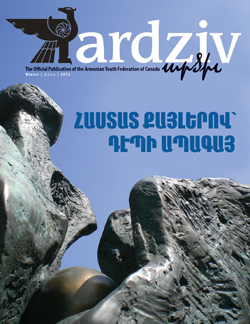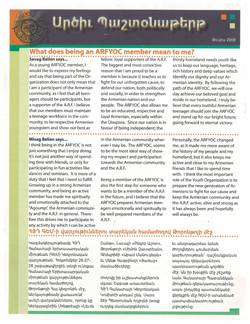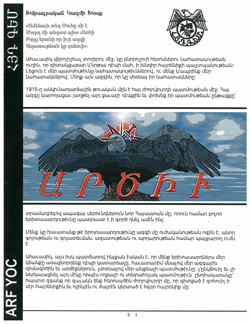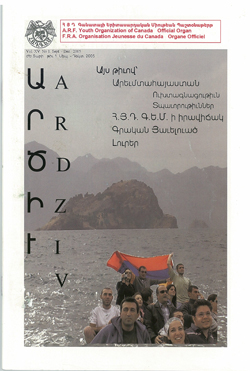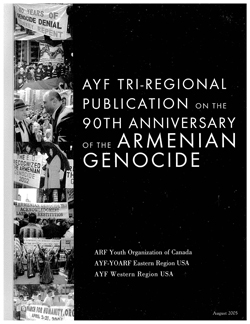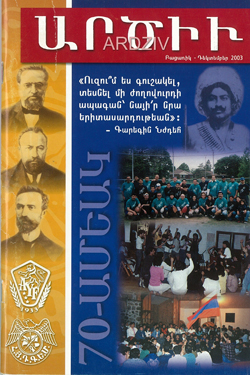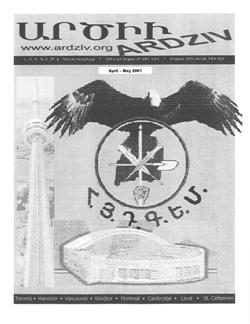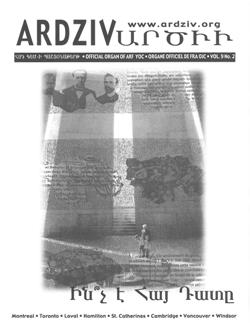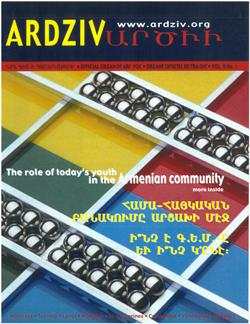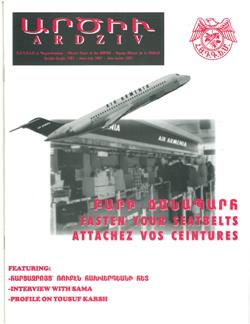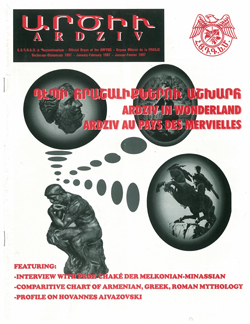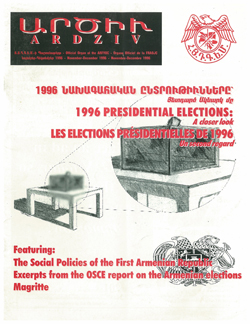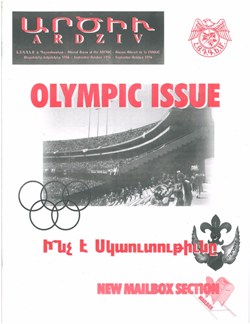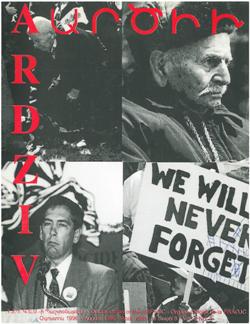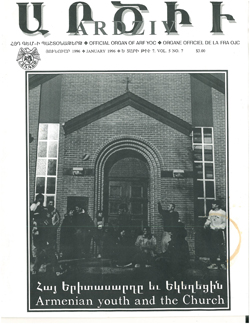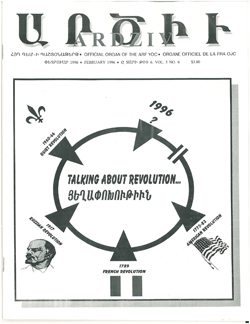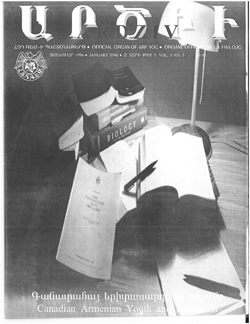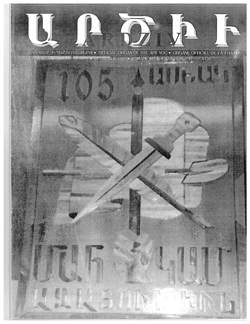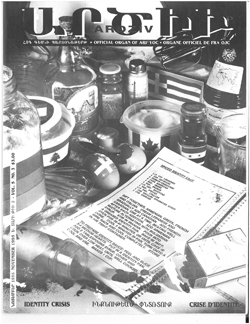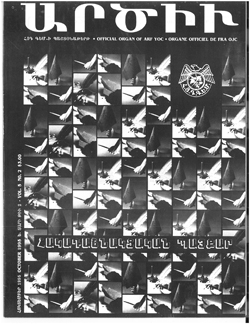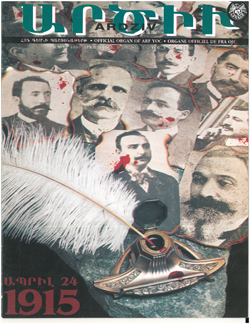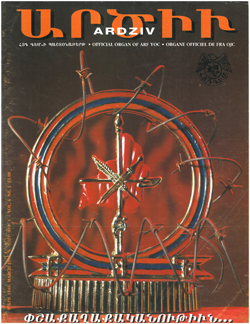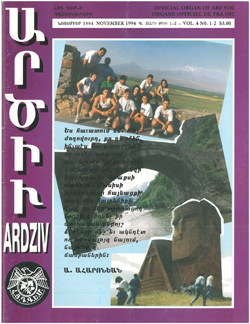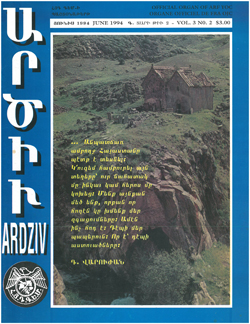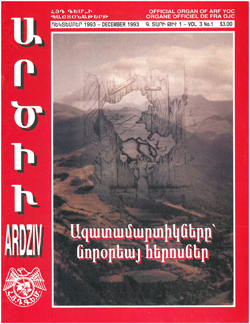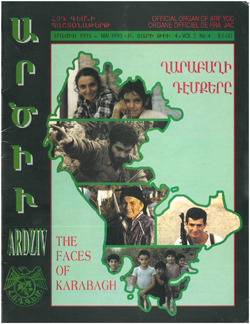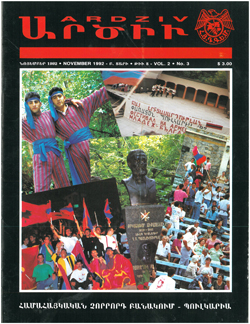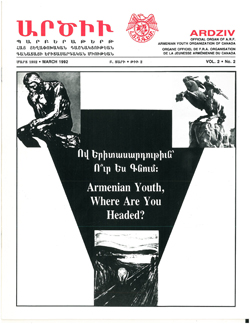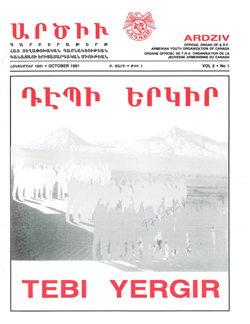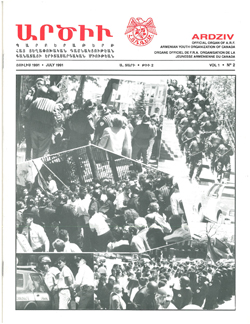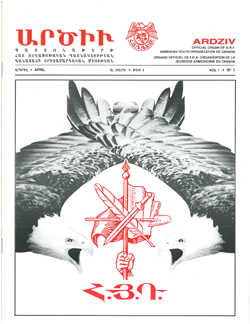Approaching a Century: Interview with the Armenian National Committee of America (ANCA) Executive Director, Aram Hamparian
By: Daron Halajian | Posted on: 06.05.2014Warning: Undefined array key "ssba_bar_buttons" in /home/u108981792/domains/ardziv.org/public_html/wp-content/plugins/simple-share-buttons-adder/php/class-buttons.php on line 602
Warning: Undefined array key "ssba_bar_buttons" in /home/u108981792/domains/ardziv.org/public_html/wp-content/plugins/simple-share-buttons-adder/php/class-buttons.php on line 602
Warning: Undefined array key "ssba_bar_buttons" in /home/u108981792/domains/ardziv.org/public_html/wp-content/plugins/simple-share-buttons-adder/php/class-buttons.php on line 602
Warning: Undefined array key "ssba_bar_buttons" in /home/u108981792/domains/ardziv.org/public_html/wp-content/plugins/simple-share-buttons-adder/php/class-buttons.php on line 602
Q: Approaching the 100th anniversary of the Armenian Genocide, what are some of the goals that the ANCA has outlined?
A: I would say that the 100th anniversary of the Armenian Genocide represents an opportunity for much greater international attention to this crime. If you think about the genocide in broad terms, ours is a cause in which we seek justice; we have the facts on our side and a moral case to be made, but there are political obstacles. The Turkish side doesn’t have the facts, doesn’t have the morality, but they do have power and time on their side. Their effort is to drag this out and see the will of the Armenians dissipate, so they can consolidate what they stole. Our goal is to use this opportunity; ultimately the power balance doesn’t change in 100 years. What does change is that the world is now watching more than ever. We have to use that opportunity to frame the issue properly. The battle is fought on many fronts but the war is a battle in which the Turkish side wants to consolidate its gains and put this issue behind them. They want the Armenian Genocide or what they call “the events of 1915” to be understood as a conflict or a dispute that can be resolved through dialogue, debate or discussion. There is a whole discipline in academia called conflict resolution. They see the problem as conflict and the remedy is conflict resolution. We see that this is a crime, it took place some time ago but it is still a crime. The consequences were real in 1915 but they’re just as real today. The viability challenges that Armenia faces are largely derived from 1915; the loss of demographics, the loss of people, loss of cultural resources, economic resources, water resources, defensible resources, access to the sea…all these elements of viability were denied to us and they will be restored not through a conflict resolution model but through a reparations model. I think that this is a long struggle. It will not begin or end with the 100th anniversary. 2015 is an important year and it represents a milestone in terms of public attention. We have to use this attention to put Turkey on the defensive and to frame the issue as a justice matter. The world will struggle mightily against us. Turkey has its interests in keeping what it stole. To give you a sense of that, Daron, think about where the world would be today had this not occurred. The Ottoman Empire losing a lot of territory as World War One approached, losing the war, losing the Arabian Peninsula, lost euro holdings. They feared that they could not hold Anatolia with the Armenians there so they wiped them out. If they hadn’t done so, there may have been twenty-odd million Armenians: generally prosperous, very well connected, very intellectual, living in that part of the world. They destroyed that future and they don’t want that to reemerge. They’re willing to work very hard on that. They have enough geopolitical leverage that they can enlist many other countries in their efforts. It is an asymmetrical struggle for us; the 100th anniversary will be an asset in this struggle. It represents a new tool, which is international public attention. Some politics and some clauses are done in the shadows and others done in sunlight. In our issues, when it’s done during the day, we benefit. When deals are done in the shadows we tend to suffer. The denial of the Armenian Genocide does not stand up to scrutiny very well. The 100th anniversary is a special opportunity for public scrutiny.
Q: Do you believe that there is a distinct difference between the government and the average citizen in Turkey? For example, after Hrant Dink’s death there were over 80,000 people protesting in the streets of Istanbul. The majority of the people were Turks or Kurds, and they admired Hrant as a symbol for freedom of speech and press. How do we react recognizing the impact he made on modern Turkish society, seeing as his ideology was to always work within the society there itself? Do you believe it was a government-initiated act or that it was organized on behalf of the Turkish ultra-nationalist citizens?
A: I think they’re tied very close together. For example, Africans were enslaved during the colonial period. I don’t think you could say that that was the government policy but the people were against it. Even after the policy was gone it took a hundred years to get over it. Maybe we’re not even there yet, as discrimination still persists. I think that the government has a really bad policy but I wouldn’t give a free pass to society, since it is often a reflection of society. Think about the Native Americans being treated brutally, and then the cultural narrative of those same people as savages. How were they savages? They were the ones being killed. Only in the last few decades have we seen a retreat from this demonization of Native Americans. We built a whole art form largely around the idea that Natives were the bad guys. It’s not just movie makers or governments. There was a societal blindside. I don’t think its accurate to say that it was only government policy. It reflects the population in some ways. Much needs to be done in regards to education in Turkey.
Q: Recently the ANCA has voiced its concern over the recent controversial pension reform in Armenia. Do you think the ANCA should have a larger role with raising awareness about social issues in Armenia?
A: The ANCA was organized as a vehicle for Armenians of any given country to petition their governments. We exercise our rights under our nation. That is our primary mission. There is a school of thought that says our resources should also lobby Washington. We look for those opportunities where we can stay true to our mission in terms of lobbying Washington, but also show a concern for what’s happening in Armenia. And one of those issues where there was common ground was the pension issue. It wasn’t simply that Yerevan was pursuing a policy on pension reform. Ultimately, pension reforms and other domestic issues are the concerns of Armenian citizens. Here’s a case where the US surprised us by taking sides in a domestic Armenian debate in a way that we thought was not wise and certainly isn’t popular. Armenia’s two previouspresidents don’t like it, and the people don’t either. The reform had very low political backing and public approval. Only five other countries have this same system, including Nigeria and El Salvador.
If it was the judgment of the Armenian government to move in this direction and the US wasn’t as actively involved, we might have not been as active. But when the US government took a partisan stand on a non-domestic issue, we said, “you’re on the wrong side of this.” In my opinion, the question is, “should diasporans be a force for good in terms of reform and development in Armenia?” I think the answer is yes. Diasporans should assert a more forceful role. They have the power. Their voices inspire the people in Armenia. The people from outside can encourage and strengthen, but the ANCA is not the vehicle for that. Our concern is when it intersects with US policy.
Q: Recently in New York City Azerbaijani groups put a lot of effort into advertising a campaign on Khojaly. What was the ANCA’s response?
A: That’s a good question. We get asked that a lot. The conflict between the Azeris, Turks and the Armenians has always been very asymmetrical. The Aliyev lobby has really picked up in the last five years or so. The first temptation is to counter those ads with our own. But considering their large budgets, it may not be such a good strategy. In Avarayr, Vartan saw that the Persians had elephants and he might have said, “well I need elephants too.” Well, he didn’t have that option. So you fight with the army you have in the best way that you can. We don’t have a million dollars sitting in our bank account for ads and if we did we would invest it very differently; in our community, our youth, our activism. We have a different approach. I’ll give an example, they’ve done this campaign for several years now. They’ve done a White House petition asking the president to condemn Khojaly. Clearly a foreign lead campaign, because in our view, there aren’t 100,000 Azeri Americans signing a petition. We think it was a pay for play. We thought it was false and misleading. We talked to the White House about this issue and asked them not to fall into the trap of foreigners influencing American politics. And when the White House did respond, they didn’t mention Khojaly and called on both sides to resolve the issue. We thought this was a big repudiation. It’s never as satisfying to punch back a punch. That may be a first instinct, but we owe it to our cause to always act ethically.
